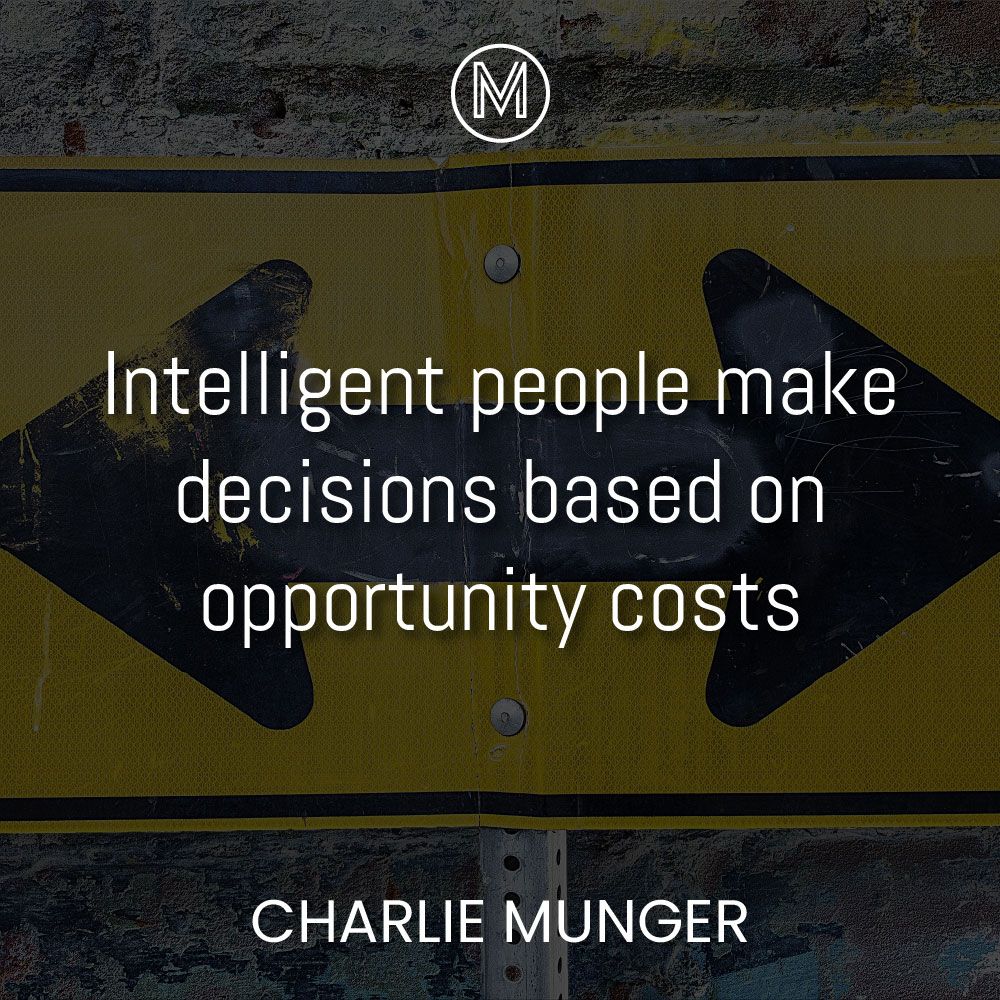Five precise steps you can take to thinking like Warren Buffet and Steve Jobs

Warren Buffet, the successful American businessman and investor and Steve Jobs, entrepreneur and founder of Apple Inc, worked in entirely different industries but shared a mental model that led to much of their success - Opportunity Cost thinking.
Opportunity cost is the cost of a particular choice or action in terms of the next best alternative that is forgone.
It is an essential concept in economics and decision-making because it helps individuals, businesses, and societies to consider the trade-offs involved in any choice or action. In our Master Series on Opportunity Cost, we deconstructed what it is and how you can do it too.
Thinking in terms of opportunity cost can have several benefits:
- It helps to clarify priorities: By considering the trade-offs involved in a decision, individuals and organizations can better understand what they value most and prioritize their resources accordingly.
- It promotes efficient resource allocation: By considering the opportunity cost of a choice, individuals and organizations can make decisions that result in the most efficient allocation of resources.
- It helps to make better decisions: By considering the opportunity cost of a choice, individuals and organizations can make more informed decisions considering the potential benefits and costs of different options.
- It helps to avoid regrets: By considering the opportunity cost of a choice, individuals and organizations can make decisions that are less likely to lead to shame in the future.
Overall, considering opportunity cost can help individuals and organizations make better-informed decisions and allocate their resources more efficiently, leading to improved outcomes and increased prosperity.

Many famous people, such as Buffet and Jobs, have used opportunity cost thinking in their decision-making processes, including:
- Warren Buffett: Buffett, one of the most successful investors of all time, is known for his focus on opportunity cost. He famously stated that "the opportunity cost of any investment is the next best alternative."
- Steve Jobs: Jobs, the co-founder and former CEO of Apple, was known for making strategic decisions that would maximize the opportunity cost of his time and resources.
- Elon Musk: Musk, the CEO of SpaceX and Tesla, is known for focusing on the long-term opportunity cost of his decisions. He has said that "one of the biggest mistakes we made as a company was trying to plan too far into the future. We should have kept a longer-term view."
- Mark Zuckerberg: Zuckerberg, the co-founder and CEO of Facebook, has also spoken about the importance of considering opportunity cost in decision-making. He has said that "one of the important things, when you're building something, is the focus. You'll do nothing good if you try too many things."
Here are some steps you can take to use opportunity cost thinking:
- Identify the options or choices that are available to you.
- Consider the benefits and costs of each option. This analysis should include both the tangible and intangible costs and benefits.
- Compare the opportunity costs of each option. This comparison means considering the benefits of the best alternative option that must be given up to pursue a particular choice.
- Make a decision based on which option provides the most value or benefit, considering each choice's opportunity costs.
- Reflect on your decision and consider whether it was the right choice based on the outcomes that resulted.
It's important to note that opportunity cost thinking is based on the assumption that resources are limited and that there is a trade-off between choices. Therefore, it can help make decisions when resources are scarce or when there are competing demands for those resources.

